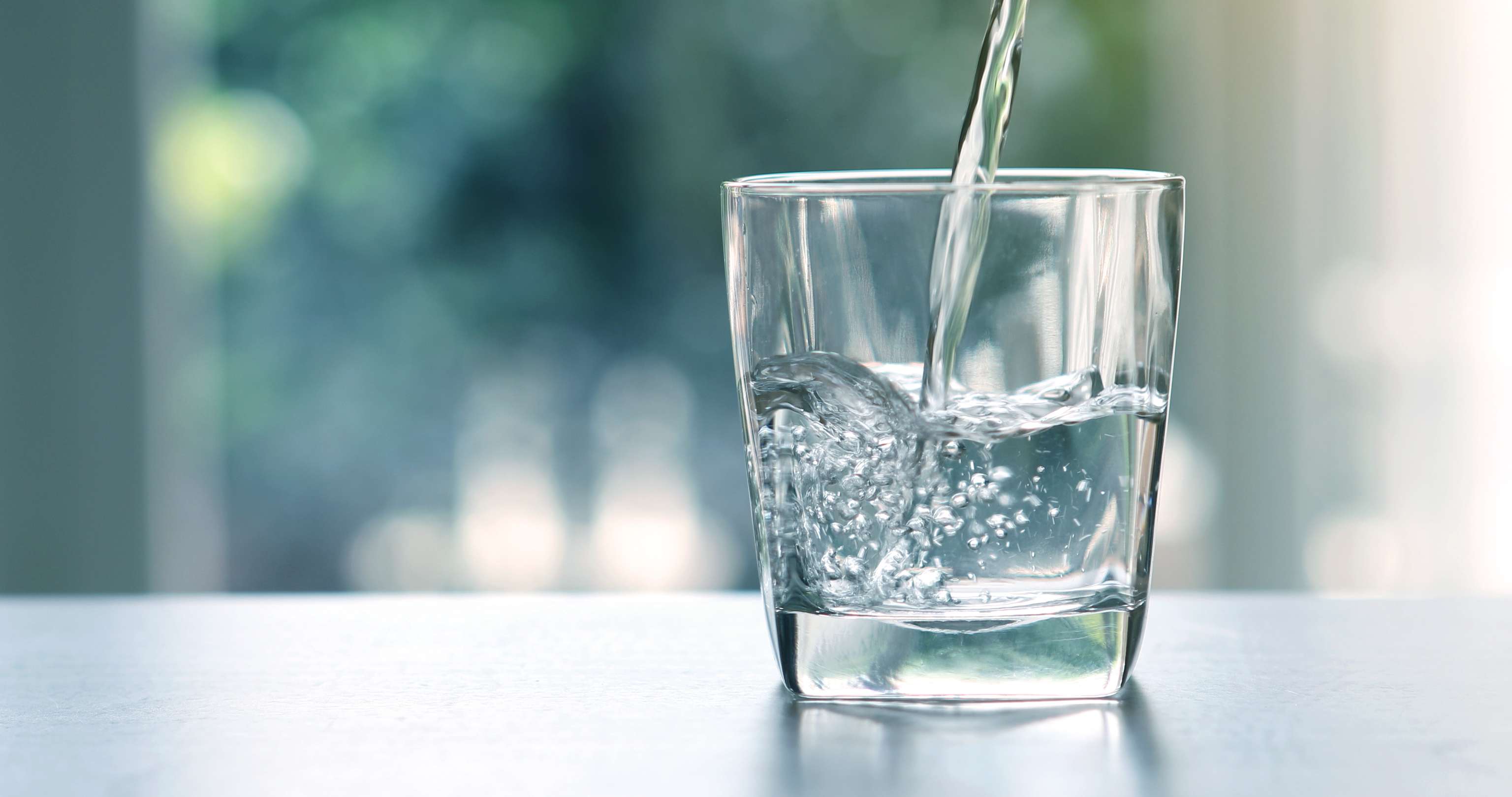To-Do List: Drink water and regulate electrolytes

Electrolyte balance
The human body, which itself consists of 50 to 70 percent water, would only survive a few days without it. Nevertheless, many of us do not reach for a glass of water often enough and do not reach the recommended 1.5 litres per day. Yet our drinking water carries many benefits and vital properties.
The water balance in our body, for example, functions via the transport of important ions, i.e. electrically charged particles, and is thus strongly linked to the electrolyte balance. Important electrolytes are for example calcium, sodium, magnesium and potassium. This group belongs to the cations, which can also be described as positively charged electrical particles. Negatively charged particles, the anions, would be phosphate, sulfate, and chloride, for example. Cations and anions are transported through the cells and change the voltage charge on the cell surfaces. Our nervous system uses this process to relay information. Various hormones, which are produced in the brain and thyroid gland, regulate this ion concentration.
The adequate distribution of electrolytes is a very delicate balance, which can be disturbed by different diseases, for example sweating, vomiting, diarrhoea or diseases of the kidney. Therefore, electrical neutrality, i.e. an equal proportion of anions and cations, should be aimed for. Nowadays there are many products on the market, such as ion-enriched water or electrolyte solution (e.g. Jonosteril, Sterofundin), which should help the electrolyte balance.
Other positive aspects:
Drinking water is not only important for the ion balance, but can also support the water balance of the skin cells and thus also has positive effects on our skin. Easily available water, whether for drinking, domestic use or food production is also important for the health of the population, as it can promote the economic growth of countries while combating poverty rates. In 2010, the UN General Assembly explicitly recognized the human right to water and sanitation: Everyone has the right to adequate, safe and affordable water for personal use.
Orthostatic Dysregulation:
A study conducted by the American Heart Association also found a positive effect on orthostatic symptoms when drinking water regularly. Orthostasis regulation is the ability to adjust blood pressure and thereby the circulatory system in an upright position, sitting or standing.
Symptoms of orthostatic dysregulation include dizziness, lightheadedness, blackening of the eyes, unconsciousness, pallor, headache, or ringing in the ears. In patients with severe orthostatic dysfunction, drinking water elicits a pressure response, thereby improving orthostatic hypotension (i.e., blood pressure below a certain level). In this randomized controlled crossover trial, 13 healthy subjects were given 500ml and 50ml of mineral water 15 minutes before sitting up on two different days. Blood pressure was measured at different points. The angle of inclination of sitting up was 60 degrees.
The result showed a significant improvement in orthostatic regulation and thus tolerance to the symptoms mentioned.
Too much water?
It is also possible to consume too much water. Because in doing so, the blood salts could become too diluted. This too low sodium concentration in the blood, also called hyponatremia, can lead to life-threatening brain swelling. Especially endurance athletes, but also people with kidney disease and high blood pressure or heart disease should discuss a certain daily amount of drinking water with their doctor to prevent possible complications.
Conclusion:
In the DACH region, the quality of water is regulated by nationwide ordinances and its quality is constantly monitored. Ingredients such as calcium and magnesium in drinking water play an important role in human health as components of bones and teeth. The function of our nervous system, blood clotting and the electrolyte balance are further factors that we should not neglect when increasing drinking water.
Sources
- MD*, Victoria E. Bush, PhD*, Lucy J. Norcliffe, BSc*, Friedrich C. Luft, MD, Jens Tank, MD, Jens Jordan, MD, and Roger Hainsworth, MB, PhD, DSc (2002): Water Drinking Acutely Improves Orthostatic Tolerance in Healthy Subjects, Christoph Schroeder, American Heart Association
- Drinking Water (WHO)
- Wasser trinken (Netdoktor)
- Elektrolyte (Netdoktor)
- Sieben Gründe mehr Wasser zu trinken (Eatsmaerter)
- Wie gesund ist Leitungswasser (Gesund.co.at)
- Trinkwasser (Netdoktor)

Danilo Glisic
Last updated on 02.12.2020
Your personal medication assistant
Browse our extensive database of medications from A-Z, including effects, side effects, and dosage.
All active ingredients with their effects, applications, and side effects, as well as the medications they are contained in.
Symptoms, causes, and treatments for common diseases and injuries.
The presented content does not replace the original package insert of the medication, especially regarding the dosage and effects of individual products. We cannot assume liability for the accuracy of the data, as the data has been partially converted automatically. Always consult a doctor for diagnoses and other health-related questions.
© medikamio